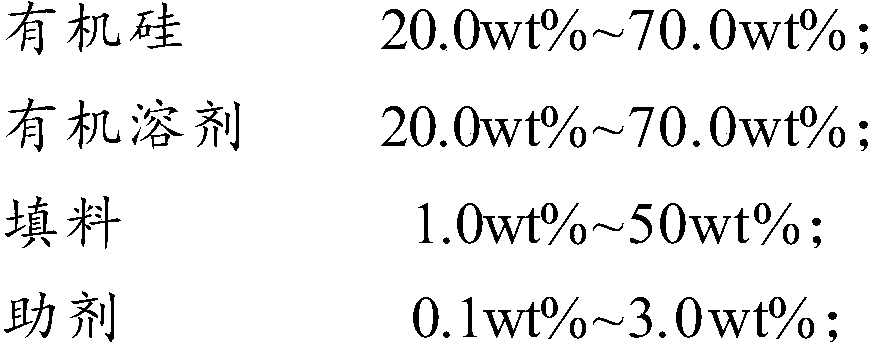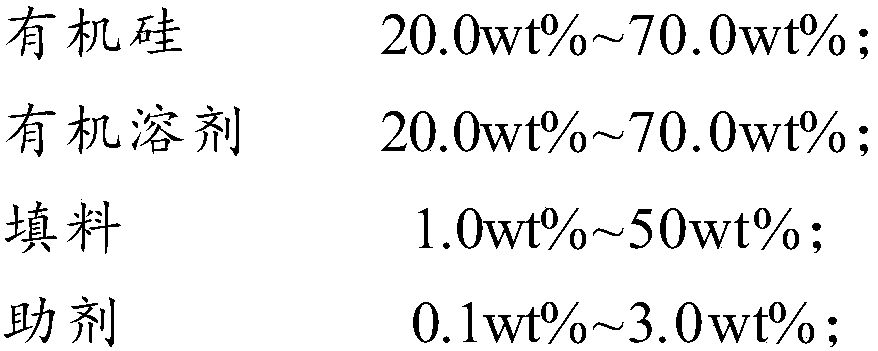Ceramic surface material and surface coating
A ceramic surface and content technology, applied in anti-corrosion coatings, fire-proof coatings, anti-fouling/underwater coatings, etc., can solve the problem that the comprehensive performance of surface materials is not very resistant to sulfur corrosion and chlorine corrosion in reducing atmospheres, and cannot be well resisted Chlorine corrosion and reducing sulfur corrosion, low self-healing ability and other problems
- Summary
- Abstract
- Description
- Claims
- Application Information
AI Technical Summary
Problems solved by technology
Method used
Image
Examples
preparation example Construction
[0063] The preparation method of the ceramic surface material described in this application can be prepared in a manner well known to those skilled in the art. In order to make the various components in the surface material more uniform, the preparation method of the ceramic surface material described in the application is preferably carried out according to the following steps:
[0064] Mix organic silicon with an organic solvent to obtain a solvent-containing composite organic silicon liquid; mix the filler with the solvent-containing composite organic silicon liquid after refinement treatment, add additives to uniformly stir, filter and package, and obtain a ceramic surface material.
[0065] The application also provides the application of the ceramic surface material in industrial furnaces. The ceramic surface material of the present application can be coated on the surface of the above-mentioned industrial furnace tube to form a ceramic surface material to protect the s...
Embodiment 1 to Embodiment 10
[0068] Mix organic silicon with an organic solvent to obtain a solvent-containing composite organic silicon liquid; mix the filler with the solvent-containing composite organic silicon liquid after refinement treatment, add additives to uniformly stir, filter and package, and obtain a ceramic surface material. The content of each component of the ceramic surface materials provided in Examples 1 to 10 is shown in Table 1.
PUM
| Property | Measurement | Unit |
|---|---|---|
| Thickness | aaaaa | aaaaa |
Abstract
Description
Claims
Application Information
 Login to View More
Login to View More - R&D
- Intellectual Property
- Life Sciences
- Materials
- Tech Scout
- Unparalleled Data Quality
- Higher Quality Content
- 60% Fewer Hallucinations
Browse by: Latest US Patents, China's latest patents, Technical Efficacy Thesaurus, Application Domain, Technology Topic, Popular Technical Reports.
© 2025 PatSnap. All rights reserved.Legal|Privacy policy|Modern Slavery Act Transparency Statement|Sitemap|About US| Contact US: help@patsnap.com



